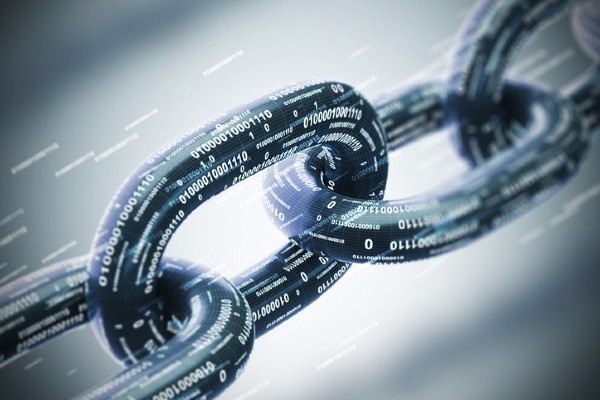
A Look at the Use of Blockchain Technology in the Arbitration Process
Three key benefits of alternative dispute resolution (ADR) are efficiency, flexibility, and privacy, and those benefits are being enhanced by the growing use of technology. Blockchain technology has emerged as a means of facilitating arbitration, particularly in international disputes.
The parties can submit their notices, claims, defenses, and evidence through a blockchain-based dispute resolution platform, with all documentation stored on the blockchain. All proceedings are conducted online. Once the proceedings are complete, the arbitration award can be executed automatically using a smart contract.
Because blockchains are decentralized and secured through mathematical algorithms, they eliminate human error and security risks. Only the parties and arbitrators have access to the blockchain, ensuring greater privacy than exchanging documents via email. In principle, there is minimal risk that the arbitrator’s award will be set aside for fraud, material mistake or imperfect form — common reasons why awards are challenged — because neither party can tamper with the blockchain.
These benefits are increasingly important in a decentralized global economy in which transnational disputes are common. Although still in its infancy, blockchain arbitration offers a means of resolving disputes that aren’t suitable for the courts or traditional arbitration.
What Is Blockchain?
A blockchain is a form of digital record-keeping that makes a history of information visible, accessible, transparent, and secure. Blocks of data related to the transaction are added to the digital ledger in chronological order. Once they are added, they cannot be altered unless transaction participants agree that the change is valid. If the participants reach a consensus, a new block of data is added and the original block remains unaltered, creating an audit trail that protects against tampering.
Originally developed for digital currency transactions, blockchain makes it possible to process financial transactions quickly and at a low cost without the need for outside standards from a third party. Digital signatures can be used to verify user identity, and users can control who sees what and how blockchain data can be used. Because a blockchain is built on a distributed model, there is no central point of failure, which makes blockchain highly reliable.
Why Arbitration?
Arbitration has been widely used to settle disputes in cryptocurrency transactions because of their transnational nature and unique characteristics. Crypto assets are intangible, the parties are potentially anonymous, and the distributed network used to track the transactions is unlikely to be located within one country. Software, not people, may enter into smart contracts — programs on the blockchain that automatically execute when predetermined conditions are met. When disputes arise, traditional courts aren’t always the best venue to obtain and enforce an appropriate remedy.
Cryptocurrency agreements and smart contracts often include arbitration clauses that preclude the parties from seeking redress in traditional courts. To date, these have generally been “off chain” — conducted using traditional processes and rules.
“On chain” arbitration encompasses a range of concepts and procedures. It can refer to anything from the use of the blockchain to store and secure case documents to new forms of adjudication and contract enforcement. Automatic dispute resolution processes allow the parties to choose one or more people or an artificial intelligence agent to decide the dispute and immediately apply it to the digital asset system.
Benefits of Blockchain Arbitration
Documents stored on the blockchain are authenticated by the party and the tribunal, and cannot be altered or deleted unilaterally. Witnesses can be examined through video conferencing. All evidence can be stored on the blockchain, giving the parties and tribunal access to a complete record that can easily be searched.
Arbitrators can use blockchain tools to begin preparing the award from the outset of the proceedings. The award will have all the elements needed to be well-reasoned and enforceable. However, the parties lose some autonomy on blockchain arbitration platforms that automatically select adjudicators known as “jurors” at random from a pool of candidates who signed up on the platform.
Some platforms include AI that can analyze historical data to predict the likely award. This can enable the parties to agree on the term of a settlement without going through the entire arbitration process.
Inherent Risks
Blockchain arbitration is not without risks. Because third-party adjudicators are involved, there’s no assurance of data privacy. Oral hearings are not required, eroding basic principles of fairness. A lack of due process cannot be sanctioned by a court’s refusal to enforce the award if it self-executes as part of a smart contract.
The enforceability of awards remains the largest question. The New York Convention on the Enforcement of Foreign Arbitral Awards, adopted by 166 nations, requires that arbitration agreements be in writing and signed by the parties. The UNCITRAL Model Law on International Commercial Arbitration allows for electronic agreements but does not envision blockchain. It does, however, give the parties free rein to determine the arbitration procedure as long as it doesn’t contravene public policy. This could provide a way forward in countries that have adopted the Model Law.
Blockchain arbitration promises fast, easy, affordable dispute resolution that’s conducted completely online. The blockchain ensures that the data is secure and non-corruptible. Until more countries and international arbitration agreements embrace the technology, however, parties to blockchain arbitration run the risk that the award won’t be enforceable in court.
Find Out More About New Developments in Law
Stay up to date on the most current legal developments in California and the rest of the nation with Purdue Global Law School.
Purdue Global Law School offers an online Juris Doctor if you wish to become an attorney licensed in California. If you wish to advance your legal education but do not intend to become a practicing attorney, you may consider an online Executive Juris Doctor.
Single law courses are also available to help you explore a particular area of law without committing to a full degree program. Request more information today.

